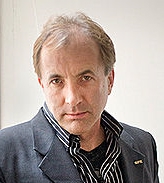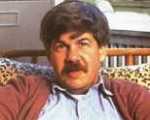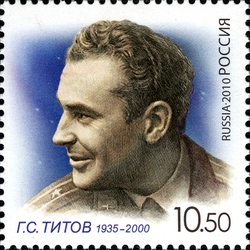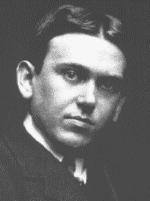This Week in Freethought History (September 8-14)
Here’s your week in Freethought History. This is more than just a calendar of events or mini-biographies – it’s a reminder that, no matter how isolated and alone we may feel at times, we as freethinkers are neither unique nor alone in the world.
Last Sunday, September 8, but in 1954, American science writer, science historian and founder of The Skeptics Society, Michael Shermer was born. Shermer taught psychology, evolution, and the history of science at Occidental College, California State University Los Angeles, and Glendale College. In 1992, he founded The Skeptics Society, which specializes in investigating pseudoscientific and supernatural claims, and is Editor in Chief of its magazine Skeptic. Since April 2001, he has written the monthly “Skeptic” column for Scientific American magazine. Once a fundamentalist Christian, who abandoned his belief in God during his graduate studies, in a June 2005 posting on his website, Shermer writes, “I am an atheist. There, I said it. Are you happy, all you atheists out there who have remonstrated with me for adopting the agnostic moniker? If ‘atheist’ means someone who does not believe in God, then an atheist is what I am.” (“Why I am an Atheist”)
But Shermer prefers to call himself a skeptic. He has written on skepticism and credulity in Why People Believe Weird Things (1997, rev. 2002), How We Believe: The Search for God in an Age of Science (2001) and The Believing Brain: From Ghosts and Gods to Politics and Conspiracies – How We Construct Beliefs and Reinforce Them as Truths (2011). Shermer continues to defend science and reason over credulity and superstition in books and essays, appearances via TV and other media and through conferences and interviews. It was Michael Shermer who said, “Religious faith depends on a host of social, psychological and emotional factors that have little or nothing to do with probabilities, evidence and logic.”
Last Monday, September 9, but in 1585, French clergyman and statesman Cardinal Richelieu was born. He achieved prominence during the reign of French King Louis XIII and was one of the first proponents of tax exemption for the churches. He became Secretary of State in 1616, and Pope Gregory XV made him a cardinal in 1622. Although he neutralized the political power of Protestants (Huguenots) within France, Richelieu made compacts of convenience with Protestants when necessity demanded, much to the consternation of Rome and French Catholics. Indeed, Richelieu greatly angered the Papacy by his alliance with the Protestant powers instead of Catholic ones during the Thirty Years War. Richelieu was no skeptic about religion, but as his political aspirations trumped all other considerations, it is fair to say there was very little depth in his religion – that religion was a tool of his ambition. Successful in reshaping France, he virtually invented nationalism, central national authority and a secret police he used to maintain his power and stifle dissent. Richelieu once said, “Harshness towards individuals who flout the laws and commands of the state is for the public good; no greater crime against the public interest is possible than to show leniency to those who violate it” (one can see this in the rationale for prosecuting Bradley Manning and attempting to prosecute Edward Snowden). He also said, “If you give me six lines written by the most honest man, I will find something in them to hang him.”
Last Tuesday, September 10, but in 1941, American paleontologist, evolutionary biologist, and historian of science Stephen Jay Gould was born. Considered “One of the most influential evolutionary biologists of the 20th century and perhaps the best known since Charles Darwin,” from 1967 Gould was Professor of Geology and Zoology at Harvard University and curator for Invertebrate Paleontology at the institution’s Museum of Comparative Zoology. But it was through his monthly columns in Natural History magazine, and his many books – notably Ever Since Darwin: Reflections in Natural History (1980), The Panda’s Thumb (1983), Hen’s Teeth and Horse’s Toes (1984) and Bully for Brontosaurus (1992) – that Gould became the leading spokesman for evolutionary theory in the last decades of the 20th century. Gould was a witness in the 1982 McLean v. Arkansas trial that defeated the teaching of creationism in Arkansas public schools. Gould is remembered for two controversial ideas, even within the scientific community: “Punctuated Equilibrium” and “Non-Overlapping Magisteria.” The former is the idea in which evolutionary change occurs relatively rapidly, alternating with long periods of relative evolutionary stability, sort of like building to a critical mass before evolutionary change occurs. The latter, also called NOMA, is the somewhat naïve view that science and religion each have “a legitimate magisterium, or domain of teaching authority,” and that these two domains do not overlap. In a 1996 interview with Michael Shermer in Skeptic magazine, Gould described himself as a secular Jew. “If you absolutely forced me to bet on the existence of a conventional anthropomorphic deity, of course I’d bet no,” said Gould. “But, basically, Huxley was right when he said that agnosticism is the only honorable position because we really cannot know. … I’d be real surprised if there turned out to be a conventional God.”
Last Wednesday, September 11, but in 1935, Soviet Cosmonaut Gherman S. Titov (Герман С. Титов), was born. Titov became, in August 1961, the second man to orbit the Earth, aboard Vostok 2 – preceded by Yuri Gagarin on Vostok 1) – and the first to spend an entire day in space. The 5-foot 4-inch (163 cm) Titov remains the youngest person to orbit the earth. That and his ebullient personality and boyish good looks made him a worldwide celebrity. Titov toured the United States in 1962 and was asked how his 25-hour flight in space affected his philosophy of life. He replied, “Sometimes people are saying that God is out there. I was looking around attentively all day but I didn’t find anybody there. I saw neither angels nor God.” He went on: “Up until the orbital flight of Major Gagarin, no god was helping make the rocket. The rocket was made certainly by our people and the flight was carried out by man.” This totally changed the editorial narrative in cold-war America: before, Titov was described as affable and polite. But after sniping at the God in whom America had placed its trust only eight years earlier, he was editorially reduced to a godless communist, spewing Soviet “anti-religious propaganda.” Nevertheless, Titov finished his interview in character, saying, “I don’t believe in God. I believe in man – in his strengths, his possibilities and his reason.”
Last Thursday, September 12, but in 1880, American journalist, satirist, social critic and scholar of American English, H. L. Mencken was born. His father was an Agnostic, his mother a Lutheran, and Mencken grew up with a disdain for all orthodoxies, especially Christian. In a letter to historian Will Durant he wrote: “What I got in Sunday school … was simply a firm conviction that the Christian faith was full of palpable absurdities, and the Christian God preposterous.” Known as the “Bard of Baltimore,” Mencken started as a reporter and eventually landed at the daily newspaper where he spent the greater part of his career, the Baltimore Sun. His antipathy toward religion was well enough established that the Sun‘s editor made him promise to leave it alone in his column, “The Free-Lance.” But when Methodist ministers railed at Mencken’s criticism of the Anti-Saloon League, his editor gave him leave to return fire. Mencken really cut loose when covering the Scopes Monkey Trial in 1925. “Consider, for example, the matter of religion,” wrote Mencken. “It is debated freely and furiously in almost every country in the world save the United States. The result is that all religions are equally safeguarded against criticism, and that all of them lose vitality. We protect the status quo, and so make steady war upon revision and improvement.”
Yesterday, September 13, but in 1635, Separatist preacher Roger Williams, aged about 32, was banished by the Massachusetts General Court for perpetually advocating religious tolerance and separation of church and state. Religious toleration does not come easily to those who dispense God’s will – “error hath not the same right as truth,” the Catholics would say. But this bright young preacher taught “that no person should be restrained from, nor constrained to, any worship or ministry,” except in accordance with the dictates of his own conscience. To Roger Williams, that did not give the Massachusetts Bay Colony the prerogative to steal Indian lands, deny the vote to the unsaved, or to prosecute civil crimes under religious statutes; in other words, “That the civil magistrate’s power extends only to the bodies and goods, and outward state of men…” Roger Williams was the first to use the term later adopted by Thomas Jefferson in his letter to the Danbury Baptists: “wall of separation.” Like Jefferson, Williams argued that such a separation benefited religion as well as government. It appeared that Massachusetts Bay magistrates regarded Rhode Island as a convenient place to park their problem children. In 1644, Williams obtained a royal charter for a colony there, which quickly gained a reputation for toleration of religious diversity under his guidance.
Today, September 14, but in 1879, the founder of the modern birth control movement and the organization that later became Planned Parenthood, Margaret Sanger was born. She was the sixth of eleven children: her mother died at 50 after eighteen pregnancies and seven miscarriages. Sanger grew to believe that a woman must control her own body – an idea generally accepted today except by religious conservatives, due in large part to Sanger’s work, but radical in her time. Sanger spent jail time for this view on about eight occasions. She studied nursing at the turn of the 20th century and married architect William Sanger, but Sanger knew that in order to show women how to control their own bodies and reproduction, she would have to defy both church and state—
My fight is for the personal liberty of the women who work. A woman’s body belongs to herself alone. It is her body. It does not belong to the Church. It does not belong to the United States of America or to any other Government of the face of the earth. The first step toward getting life, liberty and the pursuit of happiness for any woman is her decision whether or not she shall become a mother. Enforced motherhood is the most complete denial of a woman’s right to life and liberty.
Sanger died about a week shy of her 88th birthday. She had lived to see the introduction of the contraceptive pill and the 1965 Griswold decision, in which the U.S. Supreme Court struck down a Connecticut ban on contraceptives for married couples. If Sanger made one contribution to humanity that no church or priest ever made, it was to nearly double the lifespan of women: Before contraception, the average life expectancy of a female born in 1900 was 48 years; today, due to birth control, women live 80 years or longer. Margaret Sanger’s motto, on the masthead of The Woman Rebel which she edited, was, “No gods, no masters.”
Other events this week—
September 8: The American Pledge of Allegiance was published, without mention of God (1892).
September 11: Religion and the terrorist attacks of September 11 (2001).
We can look back, but the Golden Age of Freethought is now. You can find full versions of these pages in Freethought history at the links in my blog, FreethoughtAlmanac.com.








